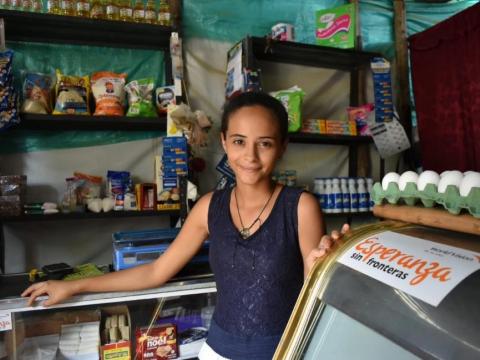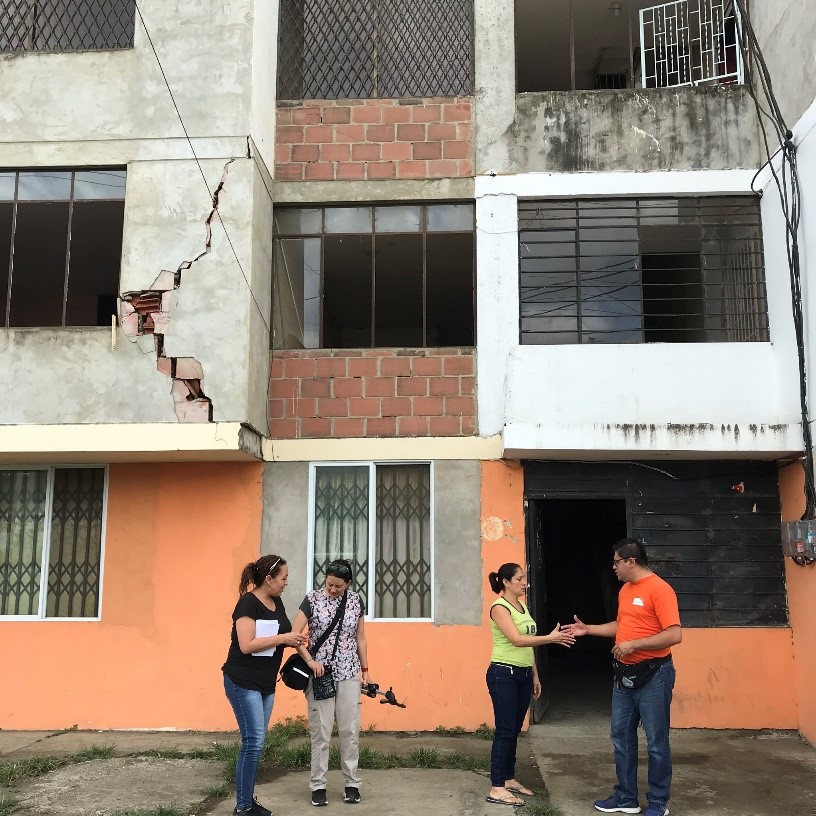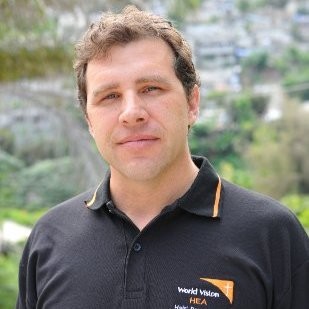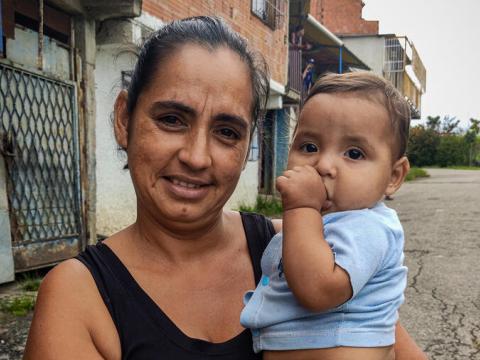
Walking the long road from Venezuela together
By Mike Weickert, Response Director, Venezuela Crisis Response
Standing on the banks of the mostly dry Tachira River, I watched thousands of people walk across the border between Colombia and Venezuela. This was a “normal” day and almost everyone who crossed the river was bringing something. Those crossing into Colombia were bringing scrap metal or other goods they could sell to make a few dollars. Some women were bringing only their hair, which would be cut and sold to make wigs. Some were carrying something much heavier, the burden of being sexually abused or exploited by the criminals that control these informal crossings. Going back into Venezuela, people were carrying suitcases full of food, medicines, household supplies and things they hoped to sell in Venezuela, children were carrying their school backpacks after another day of studying at a Colombian school.
For thousands, this is a surreal, tragic daily occurrence. For others, it’s the first time, the early stages of a journey to find a better life in Colombia, Ecuador, Peru, Chile or Brazil.

A few weeks later, in Manta, a city on the Pacific coast of Ecuador, I met Venezuelans further along on their journey. They are building a life for their families. One was a marketing professional back in Venezuela, another a teacher, another a waitress. In Ecuador, none of them can legally work, so they clean homes, sell food on the streets or just beg. Some live in crowded apartments abandoned after an earthquake three years ago. They help each other, sharing child care duties so each in turn can work. Some are even sending money back to family inside Venezuela. It was hard to imagine that this life is better than what they had in Venezuela, but every one of them said this is the case.
There is still so much that needs to be done to help these people achieve a safe and dignified life. World Vision, other humanitarian organisations, governments and communities are working to help them. We distribute cash and vouchers so they can buy the things they decide they need the most. We are helping children go to school, to access the health care and other services they need, have safe places with support from caring, qualified adults, where they can play and learn. Some have even started small businesses using cash grants and training that we provided.
Are we making a difference? Clearly the assistance we are giving has helped thousands of Venezuelans to establish some normalcy in their otherwise turbulent lives. This is what they tell us, and this is what I’ve seen. Yet, there is much more to do, especially with more than a million more people projected to leave Venezuela this year alone. They need help to integrate socially and economically into their new communities, which means helping them establish sustainable livelihoods, working with local authorities to improve access to education and health care, advocating with host communities and governments to be as welcoming as possible, and addressing the needs of host communities when appropriate.
Working with people on the move is challenging. They are mobile, they keep a low profile, they are frequently exploited and abused by criminals or mistreated by people who don’t want to host them. Donors and host governments don’t always want to give them much assistance, for fear that it will encourage more to leave Venezuela. Assisting them requires new skills and approaches, new resources and new mindsets. This is a long-term endeavour that will require sustained commitment and resourcefulness. Those who have left Venezuela are demonstrating just that, and it’s up to us journey alongside them. Are we ready to make that commitment?

